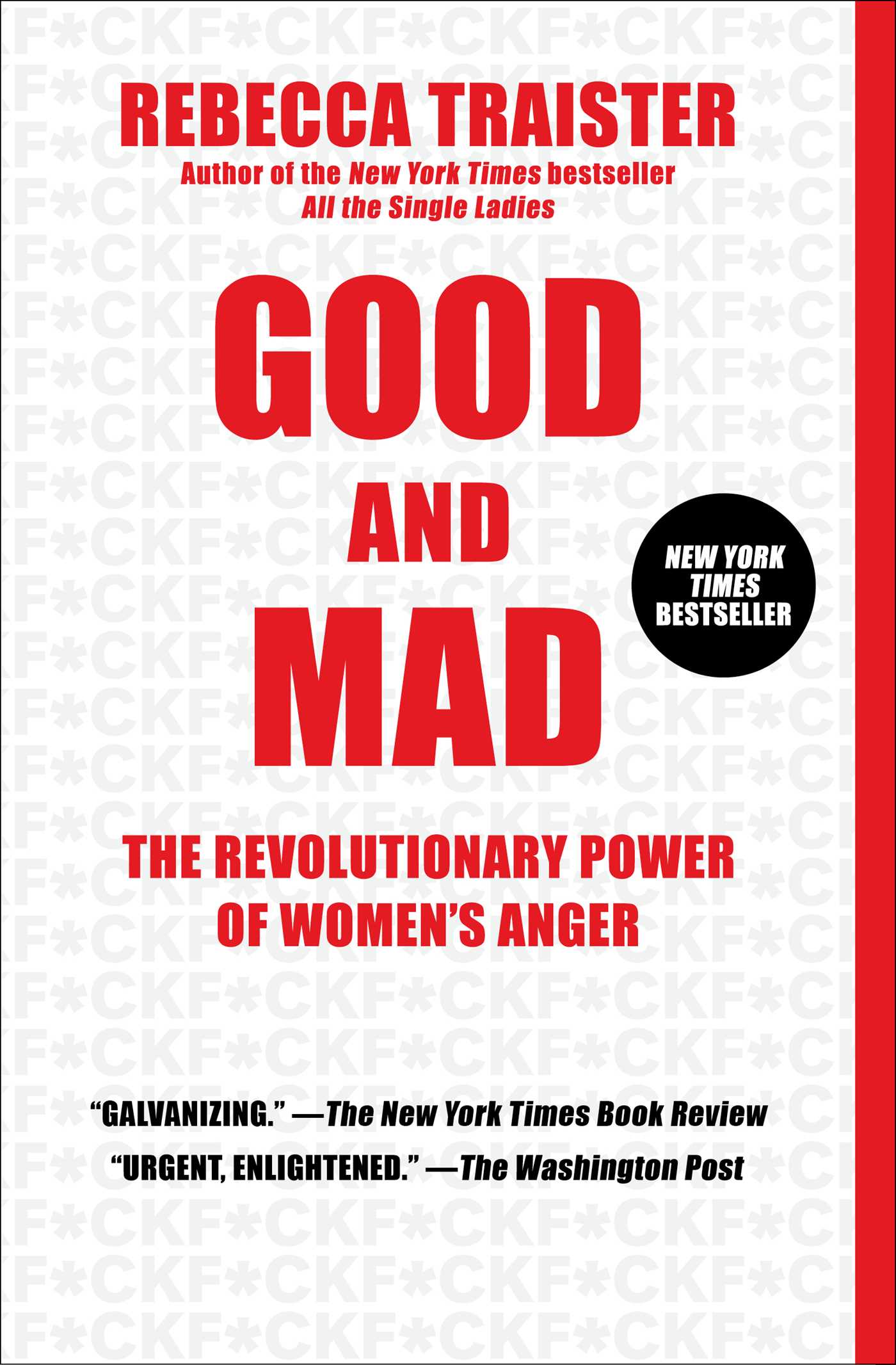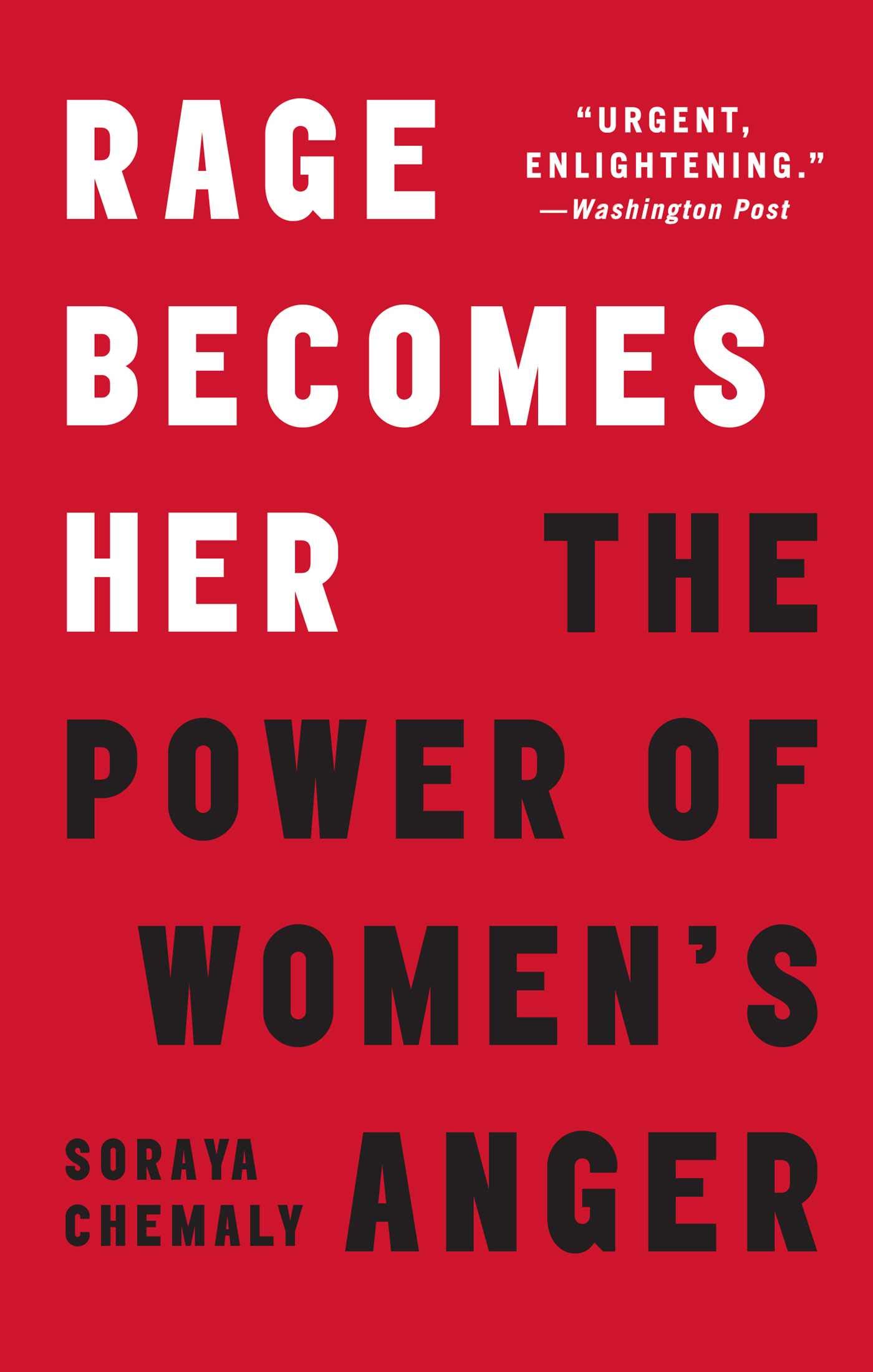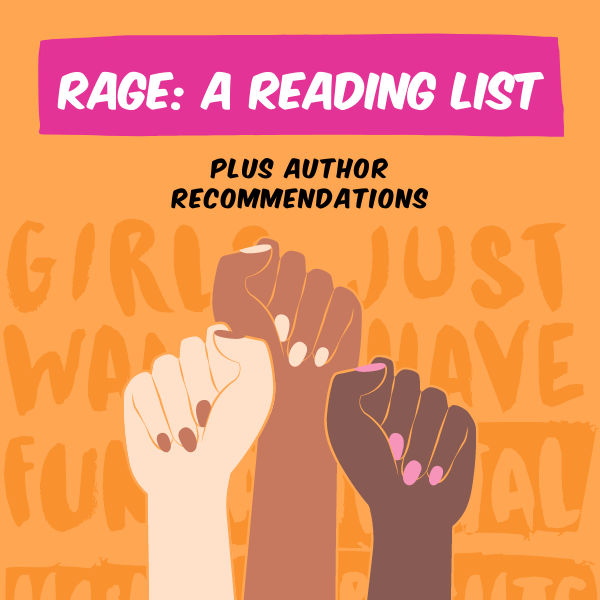Editors Note: To learn more about what you can do to help secure the Senate in the run-off Georgia races, we highly recommend visiting and/or donating to New Georgia Project, Asian American Advocacy Fund, Latino Community Fund Georgia, GALEO or the amazing Fair Fight Action.
More white women voted for Donald Trump this time around than in 2016. He is making a peaceful presidential transition difficult. A supreme court justice was rush-appointed a week before the 2020 election, and is now affecting decisions that impact us all. More than 600 migrant children separated from their family at the border are unable to be reunited with their parents because the government cannot find them. All in the midst of a pandemic that government leaders seem to not take very seriously.
Rather than continue this list of things to be angry about right now, here are some books that discuss rage and how it can be used as a tool:
Eloquent Rage: A Black Feminist Discovers Her Superpower by Brittney Cooper

Through dissecting and analyzing political and cultural events with as much dexterity as she examines her own life, Cooper centers Black feminism in Eloquent Rage. This collection of essays examines the multiple intersections of race, class, gender, mental health, sexuality, religion, and politics. She goes in depth to show how rage and feminism can be used as tools for meaningful change. She also breaks through negative stereotypes and fallacies about the Black community by using hard facts and personal anecdotes interspersed throughout the book.
Key ideas:
“Feminism can give us a common language for thinking about how sexism, and racism, and classism work together to fuck shit up for everybody.”
“Real radicalism implores us to tell the whole ugly truth, even when it is inconvenient. To own the hurt and the pain. To own our shit, too. To think about it systemically and collectively, but never to diminish the import of the trauma.”
Suggested reading from the author:
On Intersectionality: The Essential Writings of Kimberlé Crenshaw by Kimberlé Crenshaw
Black Feminist Thought: Knowledge, Consciousness, and the Politics of Empowerment by Patricia Hill Collins
Sister Citizen: Shame, Stereotypes, and Black Women in America by Melissa V. Harris-Perry
The Uses of Anger: Women Responding to Racism by Audre Lorde
Good and Mad: The Revolutionary Power of Women’s Anger by Rebecca Traister

In Good and Mad, Traister examines how women’s rage has worked as fuel for years in politics, particularly around and right after the 2016 election. She takes us through the experiences of many women, herself included, around this point in time. She wrote a section about the #MeToo movement, and connected it to the underlying corruption in the patriarchal system that built and runs the U.S.
Things the author did that I liked:
-Traister pays credit to Black women activists; she does not gloss over their work in any way (like other books I’ve read/DNF’d)
-she put different theorists in conversation with each other to make her points
-she acknowledges/addresses and unpacks her own privilege, and white privilege, specifically the privileges of white feminists, especially during the Me Too movement
Suggested reading from the author:
Eloquent Rage: A Black Feminist Discovers Her Superpower by Brittney Cooper
One Woman, One Vote: Rediscovering the Women’s Suffrage Movement by Marjorie Spruill Wheeler
At the Dark End of the Street: Black Women, Rape, and Resistance—a New History of the Civil Rights Movement From Rosa Parks to the Rise of Black Power by Danielle McGuire
The Power by Naomi Alderman
Rage Becomes Her by Soraya Chemaly

Chemaly synthesized years of research and feminist thinking to create the useful resource that Rage Becomes Her is. Working from the premise that rage can lead to meaningful change, she wrote the chapter “A Rage of Your Own” with specific, applicable ways to understand your anger and put it to work.
Key takeaway:
“Anger is an assertion of rights and worth. It is communication, equality, and knowledge. It is intimacy, acceptance, fearlessness, embodiment, revolt, and reconciliation. Anger is memory and rage. It is rational thought and irrational pain. Anger is freedom, independence, expansiveness, and entitlement. It is justice, passion, clarity, and motivation. Anger is instrumental, thoughtful, complicated, and resolved. In anger, whether you like it or not, there is truth.”
Suggested reading from the author:
The Cultural Politics of Emotion by Sara Ahmed
Gender, Emotion, and the Family by Leslie Brody
The Anger Advantage: The Surprising Benefits of Anger and How It Can Change a Woman’s Life by Deborah Cox, Karin H. Bruckner, and Sally D. Stabb
Anger: The Misunderstood Emotion by Carol Tavris


![It's our May theme and we're talking about the musical themes that we find in the books we read!
What books do you think we'll be bringing into the Feminist Book Club library this May?
[alt text: white text on a black background: May theme: Music. A boom box is in the center of the image]
#bookstagram #booksubscription #bookish #bookofthemonth #feministbookclub](https://www.feministbookclub.com/wp-content/plugins/instagram-feed/img/placeholder.png)